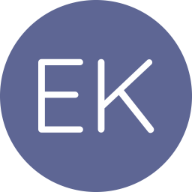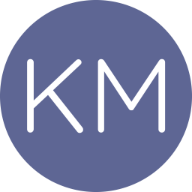A
Arrangement Fees
General administrative, booking fees charged by the lender to set up and to secure your loan. They could be called various names, i.e.: Product Fee, Application Fee, Completion Fee, or just simply an Arrangement Fee. In some cases, the lender may allow you to add the fee to your mortgage loan; however, it would depend on their criteria and your affordability.
Affordability Check
It is an assessment which lender completes to establish if you can afford to repay the agreed mortgage amount over the mortgage term. For the verification, lender will require various proofs of income and information about your regular expenditure and other financial commitments.
Agreement in Principle (AIP)
Also known as Decision in Principle (DIP) – it is lender’s initial agreement to lend you the amount required based on the information and documents you have passed on to your broker. Very often you will hear that the lender will check your credit score and will base their lending decision on your credit history, too. So, please, do make sure that you disclose any past credit issues to your advisor, so that they could advise you on which lender would be most suitable to place your application with. Obtaining an AIP does not mean that your mortgage has been fully approved. But it will help you to make an offer on the property you fell in love with.
Application Form
It is a document submitted to a lender when you apply for a mortgage to purchase or re-mortgage a property. The application is extensive and contains information about the property being considered for the mortgage, the borrower’s financial situation and employment history, and more. Lenders use the information from the mortgage application to decide whether to approve the loan.
Appraisal (of property)
It is a property value estimation which is determined by an estate agent’s inspection of the property and its comparison to the recently sold homes in the area.
Arrears
If you have mortgage arrears, it means you are behind with your payments on your mortgage. Missed mortgage payments are recorded on your credit file and if you do not pay what you owe, you are at risk of your home being repossessed. (www.stepchange.org)
Auction
A method of selling and buying of a property in a public auction house through competitive bidding; property is sold to the highest bidder. (www.hoa.org.uk)
B
Bank (Base) Rate
Sometimes called the ‘Bank of England Base Rate’ – set by Monetary Policy Committee (MPC) to keep the government’s inflation target (currently set to 2% as measured by the Consumer Price Index [CPI]). If Bank Rate changes, then normally banks adjust their interest rates on saving and borrowing also. (https://www.bankofengland.co.uk/monetary-policy/the-interest-rate-bank-rate)
Bankruptcy
If you go bankrupt and you have a mortgage, your mortgage is not written off as part of the bankruptcy process. That is because mortgage is a loan secured on a property and bankruptcy can only “protect you” against unsecured debt claims (i.e.: credit cards, personal loans, etc.). You still must make mortgage payments and payments on any other loan secured on your home. But with the unsecured debt claims stopping, you should (theoretically) have money now to pay the required monthly payments. If you are still unable to make your payments, your home may be repossessed and sold at auction to recover the outstanding mortgage debt. If the proceeds of auction do not cover the outstanding mortgage commitments in full, the outstanding amount becomes a “mortgage shortfall” and as such it becomes an unsecured debt for which you can be released at the end of the bankruptcy term. In reality, however, if the lender still wants to pursue you for that shortfall, they have six years from the date of sale of your property to inform you about that intention. To get a mortgage after being declared a discharged bankrupt is not impossible, but it may take some time. You are always obligated to disclose to the lenders the fact that you have been a bankrupt in the past. Some lenders reject mortgage application for such clients right away, but some do not. A good mortgage broker should be able to help you to sort through such lenders’ offers. (For more information on bankruptcy, see: Guide to Bankruptcy: https://www.gov.uk/government/publications/guide-to-bankruptcy/guide-to-bankruptcy)
Basic Valuation
Even though the borrower pays the fees for it, it is ordered by the mortgage lender to make sure that it is not lending more than the property is worth since the property is to become the security for the lending. The valuation is rather basic and often it takes no more than half an hour. Its cost depends on the house price, but often it is done for anywhere between £100 to £500. The valuer walks around the property, noting the appearance of the property and obvious defects. Loft is unlikely to be inspected. And there is no lifting of carpets or moving of furniture to check for potential hidden problems. The valuer then checks the prices of similar properties in your area to arrive at the reinstatement value for insurance purposes. Should anything happen to the property in the future, i.e.: fire would destroy it, and it would have to be rebuild, what would the rebuild costs be. If it happens that the valuer will arrive at the house price that is lower than what you are willing to pay for it with the mortgage borrowing, the mortgage offer might be withdrawn, or you may need to negotiate the purchase price down.
Borrower
A person or company that has received money from another party with the agreement that the money will be repaid. Most borrowers borrow at interest, meaning they pay a certain percentage of the principal amount to the lender as compensation for borrowing. Most loans also have a maturity date by which time the borrower must have repaid the loan. Borrowing and lending occur informally between family and friends, at the retail level through banks and on a large scale through governments and institutional investors. (Farlex Financial Dictionary. © 2012 Farlex, Inc. All Rights Reserved).
Bridging Loan
It’s a short-term lending often used by people who want to buy a property while waiting for the sale of another property they already own (outright or with a mortgage). Another words, if you need to pay for something but you must wait first for the funds to become available from a sale that must take place first. (https://www.money.co.uk/bridging-loans/what-is-a-bridging-loan.htm)
Disclaimer
Think carefully before securing debts against your home. Your home may be repossessed if you do not keep up repayments on your mortgage or any other debt secured on it.
NEST Mortgage and Financial Solutions fees are payable on application. Our typical broker fee is £495, however this may be subject to a change, dependent on your status and circumstances.























